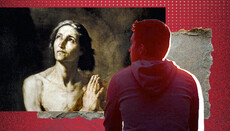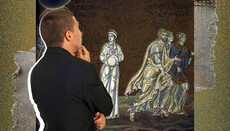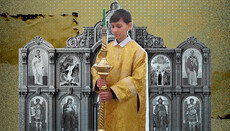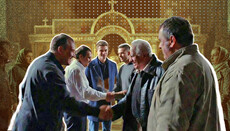Church in the emergency situation
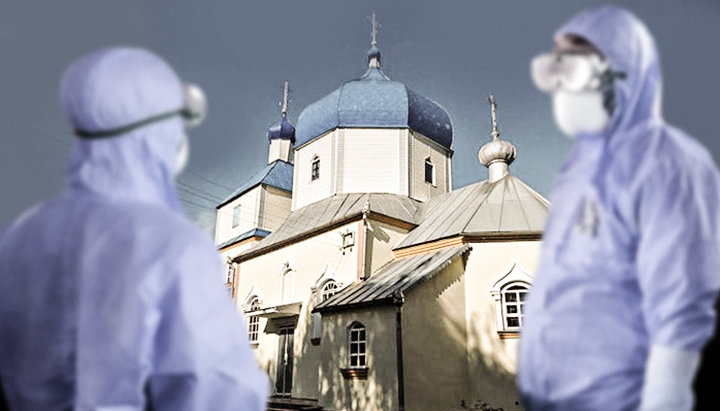
Some regions of Ukraine have declared an emergency situation. How will this affect the performance of church services?
On March 20, 2020, it became known that an emergency situation (hereinafter referred to as ES) is introduced in Kyiv. This regime is already in force in Chernivtsi and Zhytomyr regions (from March 17), in the Kyiv region (from March 18), as well as in the Dnipropetrovsk region (from March 20). Ukrainian President Volodymyr Zelensky warned that the authorities could also declare the state of emergency in certain regions, as well as in the entire country. What does it mean for the Church?
Emergency situation vs emergency state: what is the difference?
According to the current legislation of Ukraine, the government and public authorities may apply three levels of restrictive measures: high alert, emergency situation emergency state.
An emergency situation is declared in cases where there is a danger of violation of normal living conditions or a threat to the life of the population. Most often this happens after disasters, accidents, fires, natural disasters, epidemics, etc.
During the introduction of the emergency situation regime, the authorities partially restrict the movement of citizens but do not prohibit them from leaving home and do not impose "curfew". At the same time, specialized medical services of civil protection, which will provide assistance to victims and also carry out sanitary and anti-epidemic measures, can be created.
In other words, in the emergency situation there are more doctors in the region, more medical equipment, streets are treated with special disinfectants, and individual enterprises or territories are provided with specialized protection.
For example, in Chernivtsi, instead of public transport (not operating), several trolleybuses, which are used only by medical men, utility workers, rescuers and law enforcement officers, were launched. You can get inside such a trolleybus only if you have a special pass. The streets of the city are treated with a special chlorine solution several times a day, and most retail outlets are closed. At the same time, we emphasize once again, you can leave the house.
This is an emergency situation. But if the authorities declare a state of emergency, everything will become much tougher. The fact is that in this case, the constitutional norms of rights and freedoms of citizens are quite substantially restricted, rallies and mass assemblies are banned, "curfew" is imposed, while the freedom of movement of citizens is controlled by the state law enforcement agencies.
The government or local authorities can prohibit leaving the residential premises or introduce special rules according to which one can leave the house only with a pass and several times a week (such measures have been taken in China, Italy, and other countries).
Emergency situation and the Church
It is obvious that under the emergency situation regime there will be no new, significant restrictions, except for those that have already been introduced. We recall that on March 11, the Permanent Commission on Technological and Environmental Safety and Emergency Situations of the Kyiv City State Administration made a decision to ban "mass worship", and on March 16, 2020, the Cabinet of Ministers adopted a decision on restrictions in connection with the threat of the coronavirus spread, according to which religious organizations are prohibited to hold rites and ceremonies involving more than 10 people.
In response to these decisions, the UOC Holy Synod ruled that if more than 10 people came to the service, it should be held near the temple, in the open air, where parishioners will be able to stay at a distance allowed by the sanitary and epidemiological standards.
However, in his commentary on the Synodal decision, Archbishop Theodosy of Boyarka emphasized: “Any attentive reader will be able to see that in the appeal of the Holy Synod of the UOC about the coronavirus, in its practical and applied part there is no imperative - to do so and in no other way. The Synod left a field for individual forms of application of sanitary-quarantine rules in a particular parish or monastery. Somewhere sanitary regulations will even have to be tightened, but somewhere it will not be necessary. At the same time, there is room for creativity. Of course, within reasonable limits."
An example of such an approach has already been shown by the abbot of Trinity Monastery of St. Jonas, Archbishop Jonas (Cherepanov), who urged parishioners to refrain from touching the icons, cross and the Chalice, to remember the quantitative restriction of those present in the church, and advised to bring a drink (“zapivka”) with them. Similar instructions were given to the clergy of the Zaporizhzhia Eparchy by its ruling bishop, Metropolitan Luke.
We'll see how and what will happen in other places. But one thing is certain – in the emergency situation, as well as under quarantine, believers will be able to attend church services, confess and receive communion. However, it is likely that the authorities will more strictly monitor compliance with all regulations related to the fight against the spread of coronavirus.
In addition, it should be remembered that in this situation, local authorities in certain regions may apply new directives to the Church to the full extent of the law, according to which liability for violation of the emergency regime is introduced. These can be fines from 17,000 to 34,000 UAH. for ordinary citizens, and from 34 000 to 170 000 UAH. for officials. Also, a person who violated anti-epidemiological norms to combat coronavirus can be imprisoned or sentenced for a term of five to eight years if people died through his/her fault (part 2 of article 325 of the Criminal Code of Ukraine).
Given the attitude of some representatives of the authorities towards our Church, the application of all these reprisals is theoretically quite possible. So, Advisor to the Minister of Internal Affairs Ivan Varchenko warned that "all religious organizations and their leaders are obligated and will comply with the laws of Ukraine!" According to him, "the law enforcement system will react accordingly to cases of individual or collective ignorance of religious leaders, which will put at risk people’s health or life."
Varchenko also emphasized that "the restrictions on mass gatherings, trade, and movement established in connection with the coronavirus pandemic, as well as the obligation to comply with the quarantine and observation rules, are mandatory, regardless of religious beliefs". According to him, the punishments “stipulated by articles 325 and 137 of the Criminal Code and penalties under articles 44, 173 and 188 of the Code of Ukraine on administrative offenses do not contain exceptions for representatives of religious communities”.
Divine services under restrictive measures
Events related to coronavirus are developing in the world (including Ukraine) so rapidly that it is impossible to exclude the declaration of a state of emergency in our country. It is clear that if this happens, it will be extremely difficult to hold the Liturgies, as well as other Sacraments. It is most likely that in this situation the hierarchy, both at the general church level and at the local level, will have to take permission from the authorities to conduct divine services. At the same time, the presence of believers in the temple (already quantitatively limited today) will be banned altogether. We already see similar restrictions in some European countries, where a priest, a singer, and a sexton perform services. Without believers, in an empty temple.
What shall we do? There is no doubt that the Church will not stop serving the Liturgies. If the believers are not allowed into the temple, the priest can serve the Liturgy and then give home-based communion to all those who want (provided the permission from the authorities to travel). If temples are closed at all, then, with the blessing of the priestly office, the Liturgy can be performed at home, just as in the first centuries of Christianity.
For the time being, there is no strict ban on worship services (we hope that there will not be any). We can gather in our temples; we can partake and confess. Of course, it is necessary to take into account both the epidemiological situation in the city or settlement and the attitude of local authorities to the Church.
A good and quite acceptable solution to this situation has been proposed by the Holy Synod of the Romanian Church, which decided that all liturgies should be held outdoors. This approach can be used by our Church as well.
***
More recently, our Church has survived the Tomos test. Ironically, the UOC has become much stronger. Some relaxation went away, the communities began to feel like a single family of Christ. It seems that now another means of spiritual mobilization has been found for us.
We have such a psychological paradox - we especially begin to appreciate what we can lose. Before the Tomos appeared, we took the temple which we attended for granted as something unshakable and self-evident. Suddenly it turned out that at one moment we could lose it.
Now the situation is repeating in some way. Going to services, confessing, receiving communion – all this seemed permanent, unchanging, and normal. And when we wanted to get some sleep on a Sunday morning, we were sure that we could certainly confess and receive communion at the next Liturgy. And so, it turns out that the next time may not happen.
Isn't it a reason to forget, to throw away all excuses and run to the temple next Sunday?
The Church is the Body of Christ. Despite the severe historical trials, the Eucharistic Sacrifice has never stopped and will continue until the end of the world. The Church can and will exist without us. The question is if we can exist without the Church?
